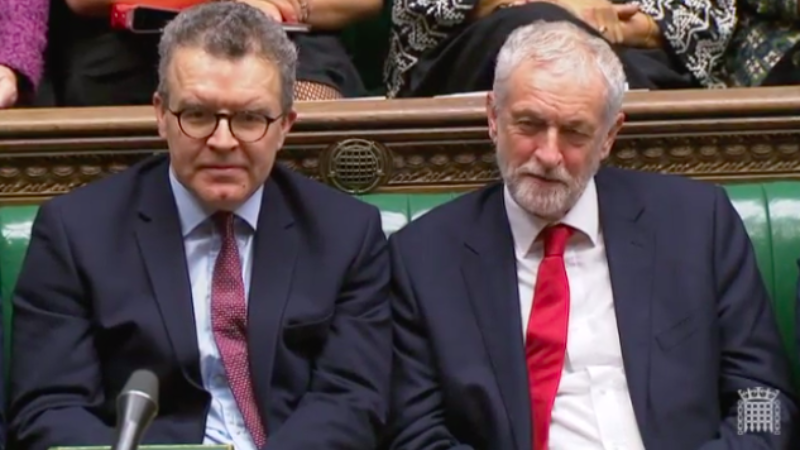
You might have heard this one before: Theresa May has delayed the Commons vote on her Brexit deal. Just as she did in December, the Prime Minister has again concluded that MPs would vote down her deal and decided to postpone defeat. Due to take place this week, the second meaningful vote will instead be held some time before 12th March, or (most likely) on that date. The question now is whether May will – either willingly or by force via the new Cooper amendment – replace her “my deal or no deal” ultimatum with a new choice: “my deal or delay Brexit, possibly for many, many months”.
Meanwhile, the Labour leadership is under significant pressure to back a move that would see MPs vote for May’s deal on the condition that it is put to the people in another referendum. It is thought that refusing to support this amendment would lead to more Labour defections to The Independent Group, deepening the party split. Asked about it yesterday, frontbencher Barry Gardiner said: “There has been a helpful amendment from Phil Wilson and Peter Kyle but actually, unfortunately, that would mean focusing on support for the Prime Minister’s deal. So there are talks going on with them. I hope we’ll find a way through.” He told Sky News that “going to the people” must involve presenting “something that is credible” and “her deal is not credible”.
Also doing the Sunday shows yesterday, Tom Watson and John McDonnell sounded more positive about the Kyle/Wilson amendment. “We’re working with them to see can we have a redraft of that amendment that people could vote for. I think there’s a high possibility that we could,” the Shadow Chancellor confirmed. This could help stem the flow of MP resignations from the party. But would it be enough? The other major reason cited for quitting is Labour’s handling of antisemitism. Deputy leader Watson yesterday said he had 50 antisemitism cases passed on to him by colleagues last week, and has called on Jeremy Corbyn to “take a personal lead on examining those cases”.
Watson, who is widely known to be holding back a greater tide of resignation letters, wants to go further still. Describing Labour as “in a crisis”, he has called on Jeremy Corbyn to reshuffle the shadow cabinet. The deputy leader sees this diversification of opinion at the top of the party essential, but others are keen to point out that Corbyn tried that at the beginning of his tenure and was rewarded with a coordinated attack resulting in the 2016 leadership contest. Watson has said that if the reshuffle doesn’t happen, he will set up a policy group of MPs who believe in “the social democratic tradition”. Whether this helps hold Labour together or creates a party-within-a-party that leads to a bigger formal split remains to be seen.
In comments that quickly attracted heavy praise and criticism, Jon Lansman told Radio 4 this morning that there is now a “much larger number of people with hardcore antisemitic opinions” in Labour, and they are “polluting the atmosphere” in some local meetings and online. There are new members “who are attracted to conspiracy theories”, the Momentum chair said. Labour’s latest response has been to ask the widely-respected Lord Falconer to act as an independent reviewer of disciplinary cases. And will that be enough? Corbyn may be addressing the PLP meeting tonight, where backbenchers will undoubtedly share their views on the idea and on what else must be done.
Sienna @siennamarla
Sign up to LabourList’s morning email for everything Labour, every weekday morning.



More from LabourList
‘If Labour is serious about upskilling Britain, it must mobilise local businesses’
Stella Tsantekidou column: ‘What are we to make of the Labour Together scandal?’
Unitarisation risks weakening local democracy unless communities are put in the driving seat’